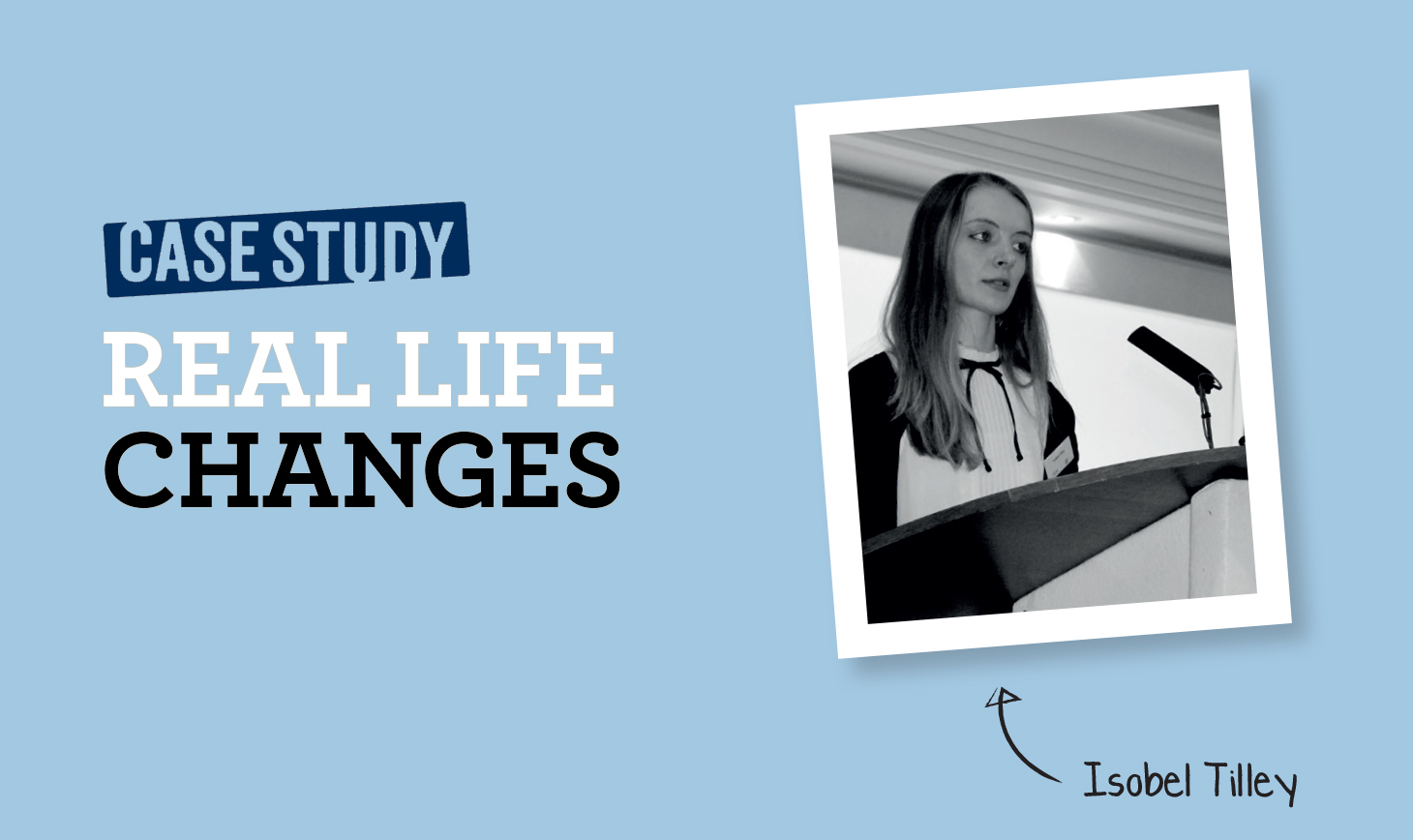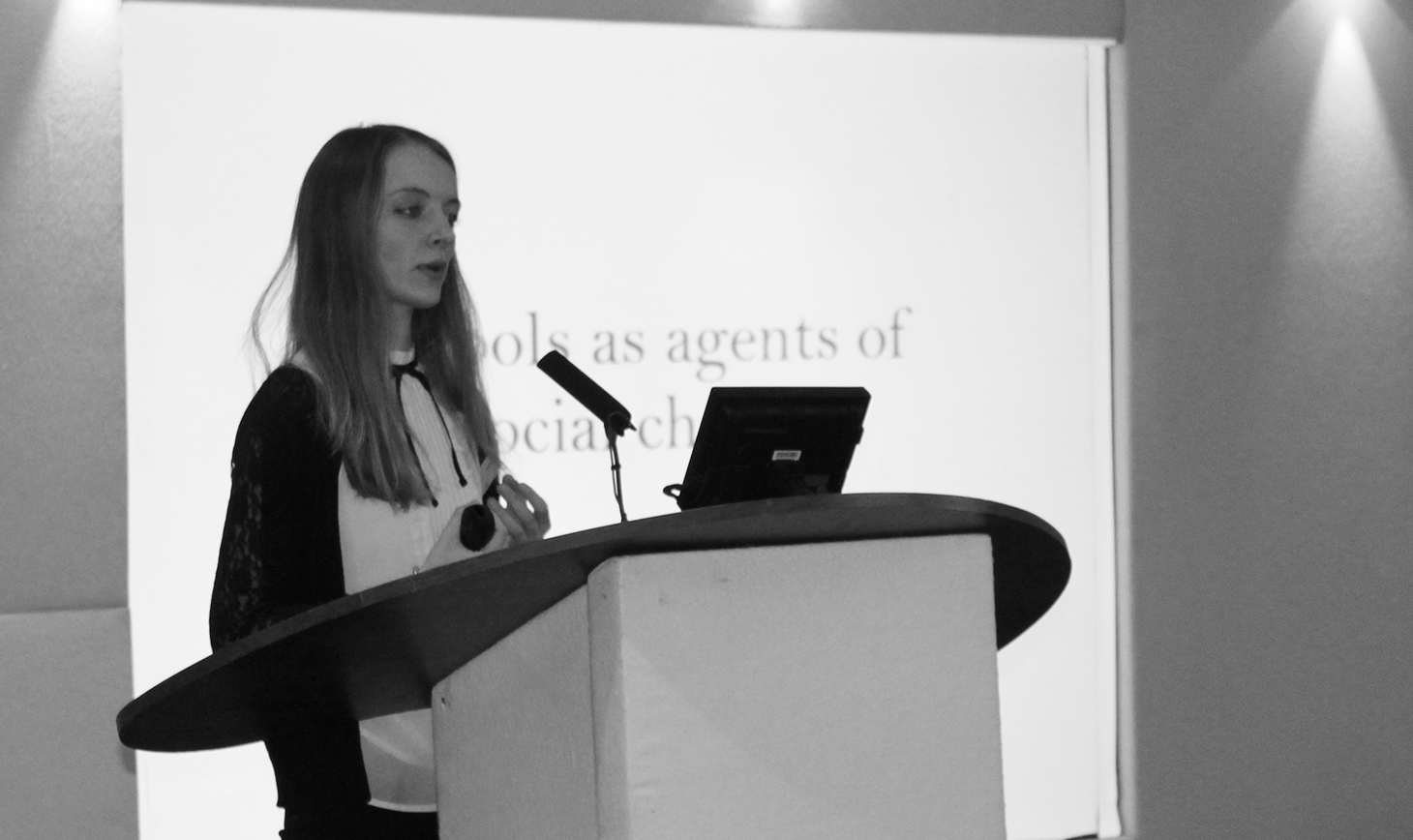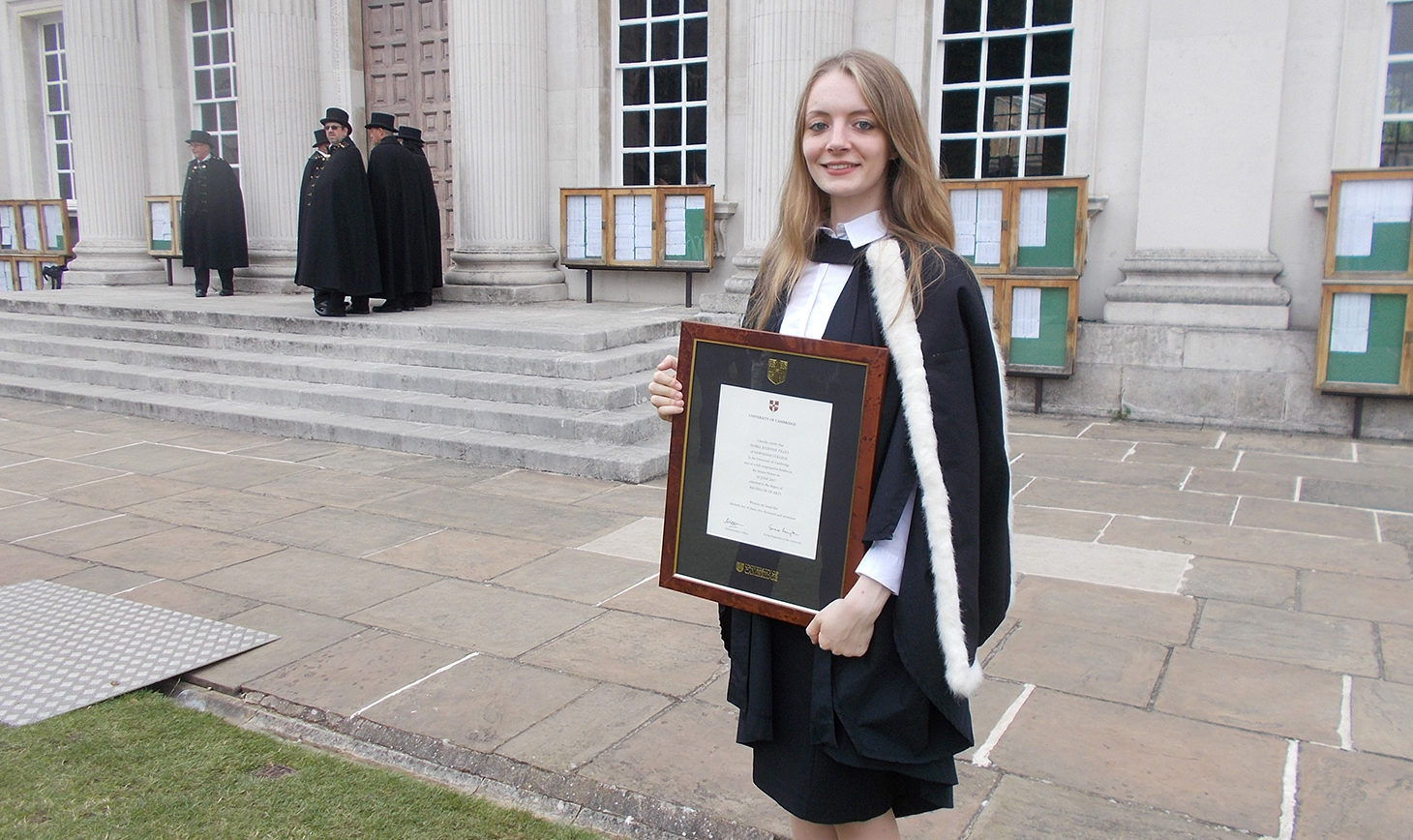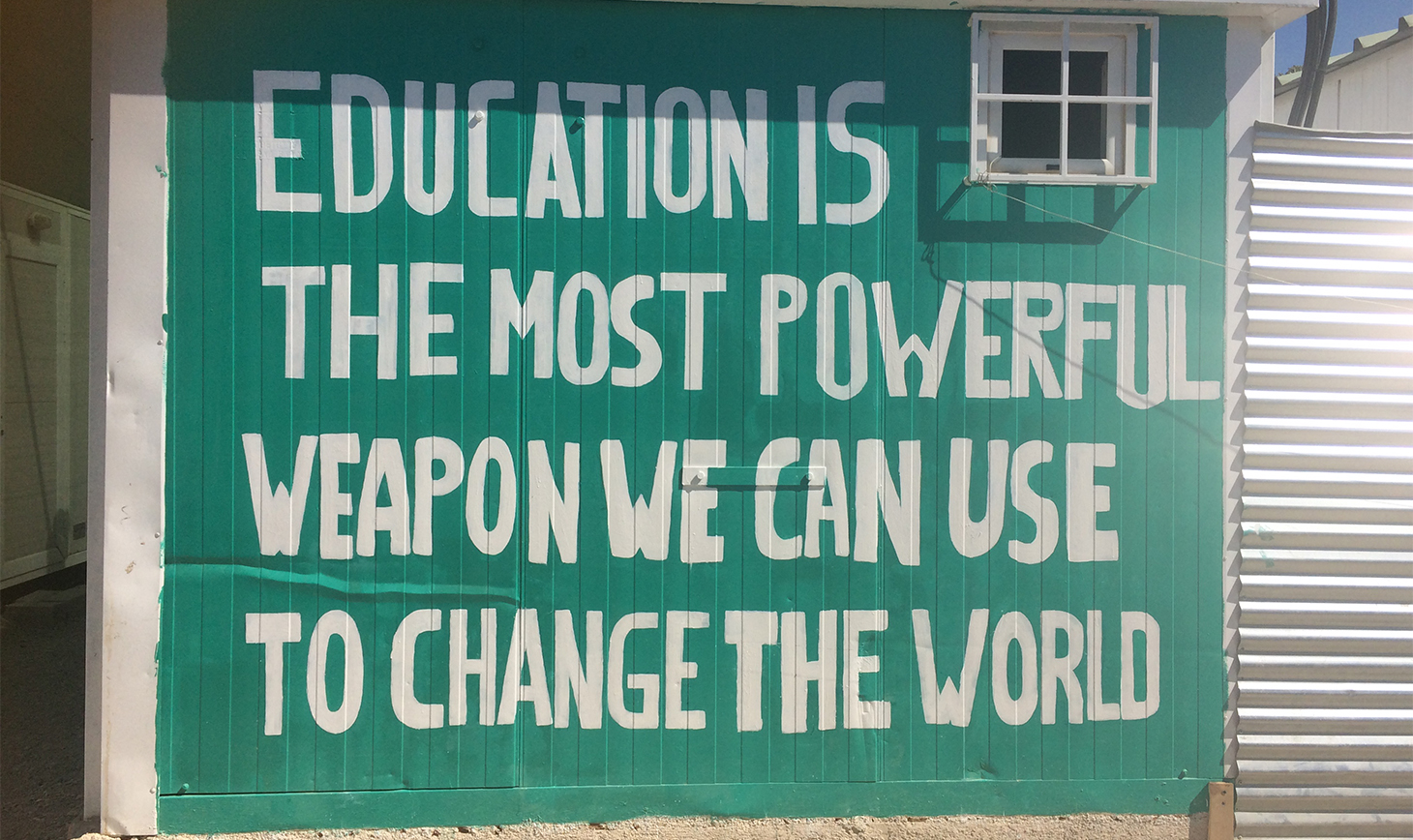
Real Life Changes: Isobel Tilley
Isobel Tilley delivered this speech at the biennial HMC and IDPE School Bursaries Conference in 2018. To a packed room of Headmasters, Bursars and Governors she highlighted her experience as a bursary recipient, the impact it has had on her life and the role bursaries play in society.
She is an inspirational young lady.
“No one in my family went to university, and my parents both left school at sixteen to get jobs to support themselves – university was not something that was even on their radar. My parents then divorced when I was six, and my dad stopped working, which left my mum as a single parent of three children. Despite her working full time, money was a constant struggle.
At primary school, I was one of the hundreds of thousands of children in the UK that received free school meals, and my family relied on benefits and the generosity of charities to keep us afloat, even receiving food parcels from the Salvation Army when things got particularly tough.
School
Ever since I was a little girl, I’ve always wanted to get a good education. I loved learning, particularly about languages and other cultures; an interest that really took hold of me when I was around ten. I wanted to get the best education possible, so I could go on to get a good job, earn some money, and not have to worry about my financial situation as I had seen my mum do.
I attended Christ’s Hospital for the first three years of my secondary school education and Reigate Grammar for the last four, receiving full bursaries at both. I really can’t emphasise enough how crucial these bursaries were to me. There is no way my family could have afforded to pay even a fraction of the school fees, and if my financial situation had not been taken into account, I would not have been able to attend either of these schools.
The education I received really allowed me to develop, both academically and personally. I had some wonderful teachers, who recognised my passion and potential for languages and encouraged me to stretch myself, to go beyond what we were doing in class, and to aim for the best results possible. As well as the obvious things that come with a high-quality education, such as excellent teaching, small class sizes and good on-site facilities, the key thing for me was that it allowed me to build confidence. Confidence was something I had struggled with as a child, but the support and encouragement I received at both schools, and particularly at RGS, really helped me to believe both in myself and in my abilities.
“bursaries do the right thing: they look at the person, at their merit, at their potential, and offer them an excellent education based on this, not based on whether or not their family can afford to pay for it.”
University
My teachers at RGS also helped me with the frankly terrifying process of applying to Cambridge, the university I had wanted to attend for years, and one I hoped would put me on the path to a successful future. I was given extra lessons, mock interviews, preparatory reading and so many pieces of advice which were invaluable to me, as this was something none of my family members could have shed any light on. Thankfully, it paid off, and I was offered a place to study at Cambridge, where after 4 intense but very rewarding years, I graduated with a double first in Modern and Medieval Languages, specialising in French and Italian. On my graduation day, I really felt that I had fulfilled my potential, and that I had reached a point that I had wanted to reach for so long.
I am currently working as a translator in Italy, and found out a couple of days ago that I have been accepted onto the civil service fast stream. I ultimately hope to go on to have a career in human rights and the charity sector, as I am really committed to making the world a better, and a fairer, place.
Schools as agents of social change
By offering bursaries to children from disadvantaged backgrounds, schools are able to effect social change, by allowing social mobility to happen, and by leveling the playing field so that children from both poorer and wealthier backgrounds have access to the same quality of education. Of course, schools cannot be expected to resolve this problem alone, but they can play an important role in making such opportunities more available to children from a variety of different backgrounds.
In my opinion, bursaries do the right thing: they look at the person, at their merit, at their potential, and offer them an excellent education based on this, not based on whether or not their family can afford to pay for it. I cannot imagine how crushed I would have been if I’d been told, at the age of eleven, that the exceptional education I had dreamed of was not available to me, not because I wasn’t bright enough or hardworking enough, but because my family did not have the money to pay for it.
Giving back
Benefiting from a high-quality education, such as my own, comes with responsibility. I and many others have been so lucky to have the education and opportunities that we have had, and it is only right that we contribute something back to society, to continue this cycle of advantage. We must recognise how lucky we have been and use these advantages to help others. Some ways that I have given back are by taking part in Reigate Grammar’s annual telephone campaign last summer, which involved calling ex-pupils, and parents of current pupils, asking for donations towards our 1675 changing Lives Bursary campaign. I felt so proud to be able to use my story to raise money so that other bright children from poorer backgrounds can have the excellent opportunities I did.
(Above: A photo taken of a Nelson Mandela quote painted by Refugees on the side of their house)
I then went on to spend the rest of the summer volunteering at Eleonas refugee camp in Greece, doing everything from setting up and then teaching English classes, to doing arts and crafts with children, and managing an initiative which encouraged refugees to apply for university, which was sponsored by the US embassy. I wanted to help these people who have experienced so much suffering, and so much loss, and to give my time and my skills to help make their lives better.
I hope that one day I will be in a position where I am able to sponsor a child through school, so that they can benefit from the same quality of education, the same support and the same opportunities that I had.
The education I received was an incredible gift, and I want to share the benefits I reaped by giving the same opportunity to others. We are all part of a local and a global community, and it is our responsibility, to use our position of advantage to help others and to help change society so that it becomes more egalitarian. Over a quarter of all children in the UK today are living in poverty. Through education, we can help to change that.”
Isobel Tilley (RGS 2009-13/ Cambridge University 2013-17)
Bursary Recipient



